"Maritime Security was also very much to the forefront as the MTISC in Ghana continues to see sustained growth in the merchant ship reporting and has extended service provision to mariners trading the waters of the Gulf of Guinea through the promulgation of advice and guidance via a newly launched website."
Director’s Log
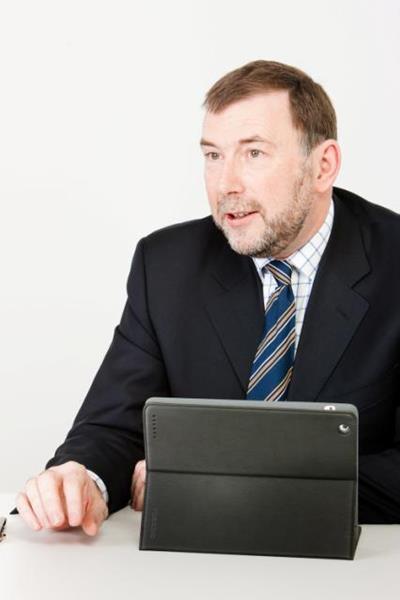
October proved an unusual month in that it saw a number of large meetings and events scheduled to be held around the world.
This is the first time I can recall the General Purposes Committee, Legal Committee, Offshore Marine Committee and the Ports and Terminals Committee all arranging their meetings during a single month.
As the Regional Panel meetings are linked to the committee meetings October also saw the regional panels meeting in Houston, London and Singapore. At the IMO meetings of the Marine Environment Protection Committee and the IOPC funds were held in consecutive weeks, both with challenging agendas and highlights from these meetings are included in this month’s newsletter.
Maritime Security was also very much to the forefront as the MTISC in Ghana continues to see sustained growth in the merchant ship reporting and has extended service provision to mariners trading the waters of the Gulf of Guinea through the promulgation of advice and guidance via a newly launched website. OCIMF also met with newly appointed officials with responsibility for maritime security abroad in the European External Action Service and European Commission and later attended the UN CGPCS plenary meeting and UAE Counter Piracy Conference in Dubai. There is plenty to read about this month and I hope everyone will enjoy the October Newsletter.
Captain David Cotterell
You can get in touch by emailing
European Regional Panel
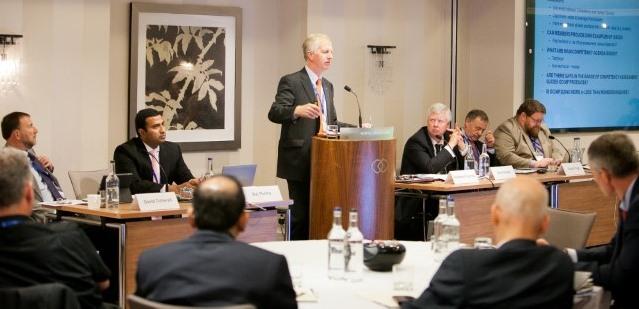
European Regional Panel (ERP) Champion, Andrew Dogherty, gave us his thoughts on the London event.
“The key issue for me with the second ERP was momentum. At the first regional panel I introduced attendees to the fundamentals of OCIMF engagement through the ‘seven C’s’ presentation, finishing with two themes that members have raised as concerns; Competency and Complacency. Initial feedback was this use of themes struck a chord with attendees, and so I decided that the second ERP would focus on Competency, and OCIMF's industry links to the topic.
“Our colleagues at the second Americas Regional Panel met a few weeks ahead of our London session and they too had used the Competency theme in discussion around the human element. Feedback from that session was positive, so it was no surprise to me that following informative updates from the Secretariat on Committee activities, the IMO and Security and Piracy, my presentation to this theme also drew a very energetic response that enabled the panel debate to be highly engaging, but also allowed that energy to carry over into the afternoon work stream discussions.
“In summary the OCIMF Director Dave Cotterell took note of members interest and the constructive input to the Competency theme, but stressed that while he had heard enough good points raised to enable a terms of reference for further OCIMF work to be considered, the challenge now lay with members to get these discussions and issues into the work streams and the relevant Committees. So there we have it - the challenge has been set.
“I would again like to thank the OCIMF Secretariat for all their assistance with the ERP arrangements, but would also like to give my special thanks to member companies for committing their experts to ERP#2 morning and afternoon sessions thus enabling the constructive engagement. I think we are starting to establish the foundations I sought and look forward to working with you all to develop future discussion themes and similar engagement at the third ERP in 2015.”
To find out more about the regional panels, and to see when there will be one in your region, click here.
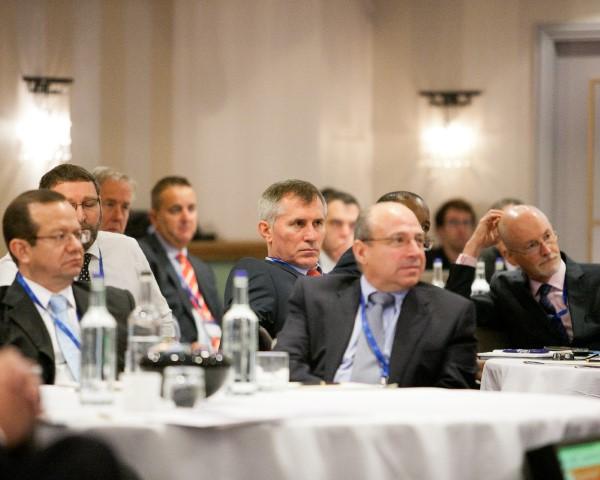
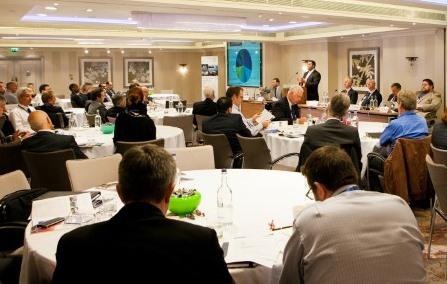
New information paper
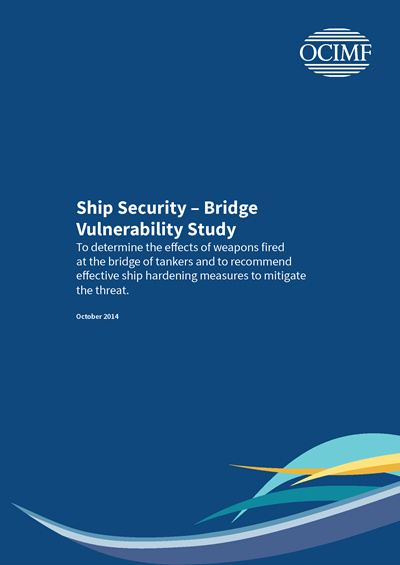
A recent addition to the OCIMF Library is the Information Paper on Bridge Vulnerability – a detailed scientific study which offers both short and long term suggestions for preventing injury to staff during an attack.
The paper is available to download from the OCIMF website.
Maritime security news
October has not been a quiet month for maritime security. A number of incidents have occurred in SE Asia and the Gulf of Guinea involving oil theft and attack.
In contrast activity in the Gulf of Aden remains contained and will do so provided mariners remain vigilant and adhere to BMP and review Risk Assessment processes.
On the horizon, the Contact Group on Piracy off the Coast of Somalia, currently under the Chair of the EU meets at the end of the month. One of the hot topics is a discussion is the geographic coordinates of the High Risk Area (HRA) as some nations believe it should be reviewed – a full report next month but at the time of writing no immediate change is envisaged.
The General Purpose Committee, at their meeting earlier this month, approved the Terms of Reference for a Maritime Security Sub Committee (MSSC). This new work steam provides a formal mechanism for the GPC to task maritime security related issues and development in areas of concern to members. Related to the formation of the MSSC, a routine Maritime Security Round-Up has been reinvigorated for CSO’s to dial in and share security experiences and lessons; at the inaugural gathering the OCIMF MNLO at the MTISC-GoG in Accra and the OiC of UKMTO joined to provide regional updates and answer questions. The next dial-in meeting for the Maritime Security Round-Up will be on 10 December – contact Russell Pegg, (
News from the IMO
The Marine Environment Protection Committee (MEPC) 67 meeting at IMO took place on 13-17 October. More than 100 member states and 50 NGOs were in attendance.
The main items discussed were the Polar Code and the Ballast Water and Management (BWM) Convention implementation.
Polar code
Both the part II of the Code and the relative Amendments to MARPOL were approved. The ban for oily water or residues to be released at sea was reiterated. Following this approval, the MEPC will consider the Code and the draft amendments for adoption at its next session, in May 2015. Once adopted, the Polar Code and MARPOL amendments could enter into force on 1 January 2017.
The Maritime Safety Committee (MSC), approved the Introduction and part I (safety provisions) of the Polar Code, along with a draft new chapter XIV of the International Convention for the Safety of Life at Sea (SOLAS) in May. The MSC will consider the adoption of the Polar Code and SOLAS amendments at its next session (MSC 94, 17 to 21 November 2014). Once adopted, it is expected that the SOLAS amendments making the Polar Code mandatory would enter into force on 1 January 2017.
BWM
The threshold for implementing the Convention is 35% of the World fleet. With Japan and Turkey ratifying the Convention the total is now 32.54%. With Italy, Indonesia and the Philippines intending to ratify in 2015 it is likely that the Convention will meet the 35% threshold next year and will enter into force in 2016.
With the accelerated timeline the Guidelines for approval of ballast water management systems (G8), have to be reviewed quickly. It has been decided that the early movers who installed approved BWM systems before the application of the revised G8, should not be penalised.
Other points discussed included:
- Definition of Black Carbon not decided. Item sent back to PPR sub-committee for further work.
- Quality of Marine Fuels was discussed and a Correspondence Group set-up (OCIMF is included).
The International Oil Pollution Compensation 1971 Fund to close
After long discussion and due to the lack of consensus being reached, it was decided for the first time in the 1971 Funds history to vote on winding up the 1971 Fund.
The results of the vote were clear with 29 member states voting for, 14 against and 3 abstaining. The 1971 Fund will be dissolved on the 31 December 2014.
Alex VanDusen joins OCIMF
We asked our new Technical Advisor, Offshore, Alex VanDusen to tell us a little bit about himself.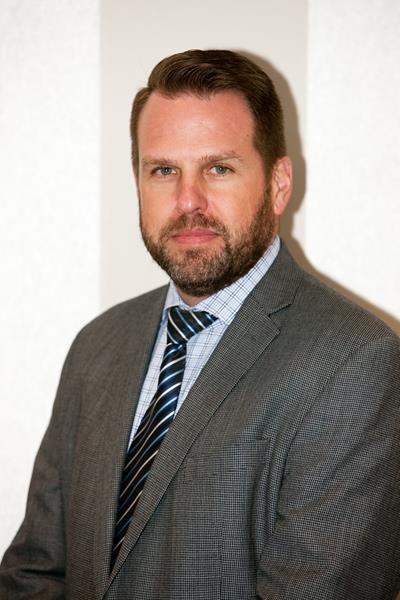
“I started my maritime career in 1999 when I joined the U.S. Coast Guard. While in the Coast Guard I worked in several different departments including Port State and Domestic Vessel inspection, Waterfront Facilities and Incident Management Division
“I started working for Chevron in 2007 in Marine Assurance department dealing with Tug, Barge and Tank ship vetting. Before being seconded to OCIMF I work as an Upstream Marine Authority, which provides marine risk management advice and support to upstream marine operations. This includes identifying and assessing marine risk as well as recommending mitigation initiatives for all marine operations involving tugs, crew boats, PSVs, AHTs, OSRVs, seismic vessels, heavy lift vessels, etc. In this role he also advised on any marine related emergencies as well as participated in all marine related investigations with in my respective business units.
“While serving as Technical Advisor - Offshore my goal is to continue to promote OCIMF’s mission as it pertains to the offshore marine industry, to support and improve upon the OVID system and achieving an impact on standards in the offshore industry.”
Alex VanDusen
Technical Advisor - Offshore
New MTISC-GoG website
The Maritime Trade Information Sharing Centre – Gulf of Guinea has launched a new website with information for vessels entering and operating in the established Voluntary Reporting Area.
The website also has Maritime Security Guidelines for the region which may be of help to members.
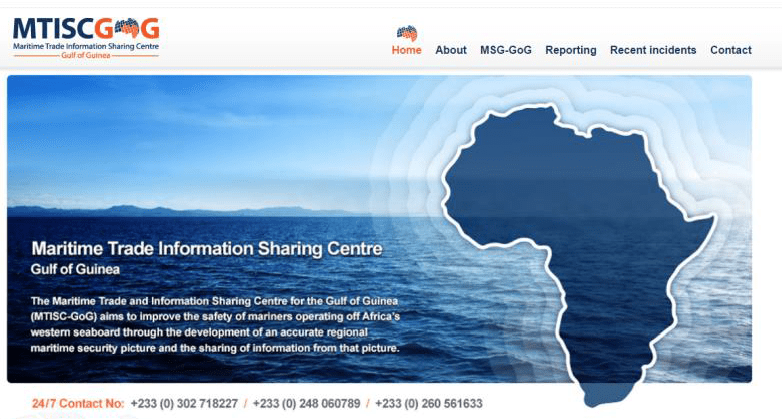
SIRE inspector refresher course
A SIRE inspectors' refresher course was held in Tokyo, Japan on 23-24 October.
21 existing inspectors attended the course. This was the fifth course in 2014 and so far around 130 inspectors have attended the refresher courses this year. Inspectors were brought up to date with matters of changes and improvement implemented to SIRE systems. An extensive presentation and discussion were held relating to quality of SIRE inspection reports and feedback system, ethics and behaviour. The last refresher course of the year will be held in London in November.
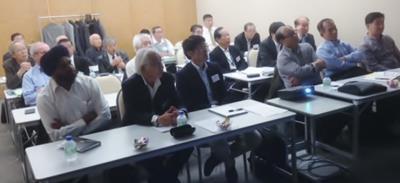
New Chevron training centre
Oliver Pointon, Inspector Training & Accreditation Manager, represented OCIMF at the opening of a new training centre set up by Chevron Shipping and Northern Marine Management.
This new training centre is in a purpose built building located behind Northern Marine Management’s current headquarters in Clydebank on the outskirts of Glasgow. The training centre is a state of the art facility featuring, Full Mission bridge simulators, Engine Room simulators and other hands on training equipment including debrief rooms and other classroom training rooms.

